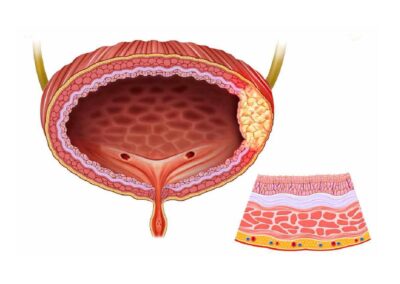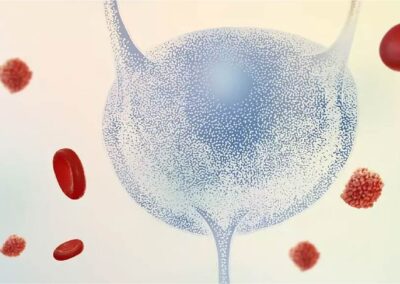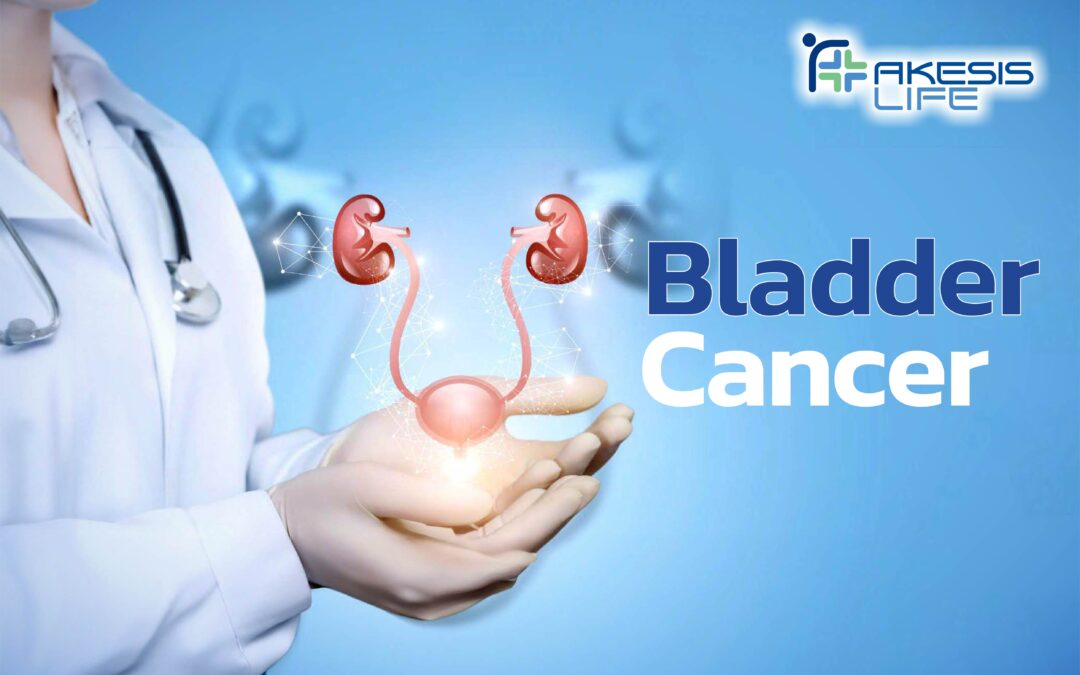The bladder is a thick-walled organ composed of multiple tissue layers. Most bladder cancers originate from the inner lining (urothelium), and as the tumor grows, it gradually invades deeper into the outer layers of the bladder wall.
Patients with bladder cancer often seek medical attention during the early stages. Common symptoms include blood in the urine, frequent urination, and pain in the lower abdomen during urination.

Risk factors for bladder cancer include:
- Male gender
- Caucasian race
- Smoking
- Family history of bladder cancer
- Lynch syndrome
- History of pelvic radiation
- Environmental exposure to toxins such as heavy metals, aromatic hydrocarbons, benzene, and chemicals from dyes
- Certain medications, such as pioglitazone
- Obesity

Bladder Cancer Management: 3 Main Categories
(Depending on how deeply the cancer cells have invaded the bladder wall)
- Non-Muscle Invasive Bladder Cancer (NMIBC – T1)
In this group, cancer cells are confined to the inner lining and have not invaded the muscle layer. Treatment can often be curative using transurethral resection (TURBT). Some patients may receive additional treatments such as intravesical BCG therapy to prevent recurrence, depending on risk level.
- Muscle Invasive Bladder Cancer (MIBC)
In this group, cancer has spread into the muscular layer of the bladder. Detailed evaluation is essential to determine whether the bladder can be preserved or must be removed. Treatment planning also considers whether the cancer has metastasized and if chemotherapy is necessary. With appropriate treatment, recurrence can be prevented.
- Metastatic Bladder Cancer
Cancer has spread beyond the bladder to other parts of the body. The primary goal is to control disease progression and prevent further metastasis.

Integrative Medical Support for Bladder Cancer
Integrative medicine complements conventional treatment by supporting the body during therapy and promoting long-term well-being.
✅ Support includes:
- Reducing Recurrence Risk
Through lifestyle modifications, anti-inflammatory diets, and regular exercise to strengthen the immune system. - Support During Conventional Treatments
During surgery, chemotherapy, or radiation, integrative care can help maintain strength and minimize side effects. Support includes:- Nutritional guidance to improve recovery
- Physical therapy to reduce side effects
- Lymphatic circulation stimulation
- Hyperthermia therapy during chemotherapy to improve response
- Beneficial Natural Substances
Some natural extracts may support patients with bladder cancer, including:- Curcumin
- Omega-3 fish oil
- Cruciferous vegetables (e.g., broccoli, cabbage) containing Sulforaphane
- Carotenoids from orange vegetables like carrots
- Green tea extract (EGCG)
- Probiotics

- American Cancer Society – Bladder Cancer Overview
- NCCN Clinical Practice Guidelines for Bladder Cancer
- Rutz J. et al., Curcumin – A Viable Agent for Better Bladder Cancer Treatment, IJMS, 2020
- Piwowarczyk L. et al., Role of Curcumin and EGCG in Bladder Cancer Treatment, Cancers (Basel), 2020
- Kennelley GE. et al., Mechanistic Review of Sulforaphane in Bladder Cancer, Am J Clin Exp Urol, 2023


